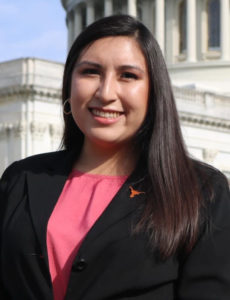• By Diana Long • IDRA Newsletter • February 2023 • 

Public schools have become the target of censorship attacks and a new wave of culture wars. Proponents of privatizing public schools levy false allegations against inclusive school practices and curricula as a new way to justify private school voucher programs proposed in the Texas legislative session.
Voucher proposals typically appear in one of three forms: education savings accounts, tax credit scholarships, and traditional school vouchers. In all forms, they divert public taxpayer dollars away from public schools to private entities that are not held to the same standards as public schools and have salient problems for school accountability and transparency.
In terms of accountability, private schools are not required to be rated under the state’s A-F accountability system, administer the STAAR test and end-of-course exams, or transparently account for their funds and spending (Burris, 2022). While there are certainly flaws to address within our accountability system, it is problematic to shift public funds to a private system that has no requirements for comparable accountability measures.
Voucher programs misleadingly fail to cover the full cost of private school tuition, and they cut out students in rural areas. Private schools are not required to serve students with disabilities, emergent bilingual students, or many other federally-required accommodations.
Voucher-like programs have historically faced bipartisan opposition in Texas. Many legislators do not want to funnel state money away from public schools that are already severely underfunded. The last ambitious voucher bill before the Texas Legislature was filed in 2017 but was killed in the Senate by rural lawmakers who have long opposed private school choice policies (López, 2022).
Proponents of vouchers appeared to also face opposition from the State Board of Education. In late 2022, the board voted to reject diverting tax dollars from public schools to private and religious schools as one of its legislative priorities (Wiggins, 2022). But in February, the board reversed its position.
At the same time, during a winter storm that left millions of Texans without power, Governor Abbott emphasized his goal to establish private school vouchers. In a legislative session that should have focused on school safety, teacher pay and retention, and securing equitable school funding, state leaders are prioritizing vouchers that harm the vast majority of students. Voucher measures would exacerbate problems, like school segregation and disparities in the quality of education students receive.
School funding is just one piece of the education system, but research has shown it is the most important when it comes to providing children with a high-quality education (Latham Sikes, 2022). Public schools serve 92% of Texas students and are held accountable to the public (TEA, 2022). And for many communities, they offer primary sources of employment, social services and community events. Public schools should be protected. Texas has the responsibility to educate all Texas students.
Resources
Burris, C. (April 2022). Public Schooling in America: Measuring Each State’s Commitment to Democratically Governed Schools. Network for Public Education.
Latham Sikes, C. (August 2022). How Texas Schools Are Funded – And Why that Matters to Collective Success, issue brief. IDRA.
López, B. (November 2022). Some Republicans are optimistic about enacting school choice in next year’s session – but it might not be so easy. Texas Tribune.
TEA. (2022). Enrollment in Texas Public Schools, 2021-22. (Document No. GE22 601 05). Texas Education Agency.
Wiggins, M. (November 2022). Texas State Board of Education votes to reject private school vouchers. Teach the Vote.
Note: The articles in this issue of the IDRA Newsletter feature the research and policy advocacy of IDRA’s education policy fellows. The IDRA Education Policy Fellows program is a nine-month fellowship designed to provide real-world training to advocates who represent the communities most impacted by state-level education policymaking. Get more information about the program, including how to support the fellows’ work.
Diana Long is an IDRA education policy fellow. Comments and questions may be directed to her via email at diana.long@idra.org.
[©2023, IDRA. This article originally appeared in the February 2023 IDRA Newsletter by the Intercultural Development Research Association. Permission to reproduce this article is granted provided the article is reprinted in its entirety and proper credit is given to IDRA and the author.]


